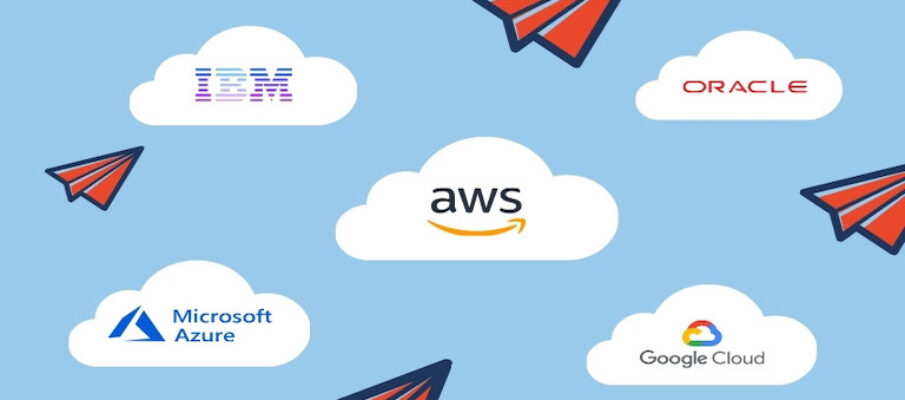In today’s technology-driven world, more and more businesses are leveraging the power of cloud computing. It provides scalable infrastructure, cost efficiency, and the ability to access data and applications anytime, anywhere. However, choosing the right cloud service provider (CSP) is crucial to maximizing these benefits. This guide will outline key factors businesses should consider when selecting a CSP.
Understanding Your Business Needs
Before embarking on the journey to find a suitable cloud service provider, businesses must first understand their specific needs. This involves identifying the type of data you will be storing and the kind of services and applications your business uses. You should also have an understanding of your expected data volumes, growth rates, and the geographic distribution of your services. Furthermore, different industries often have different regulatory requirements which can influence the choice of CSP.
Security and Compliance
Data security is paramount in the digital age, and the chosen CSP should have robust security measures in place. This includes physical security of data centers, data encryption, firewalls, intrusion detection, and regular security audits. Compliance is another significant factor, especially for businesses operating in regulated industries like healthcare or finance. The CSP should be able to meet industry-specific compliance requirements, such as HIPAA for healthcare or PCI DSS for payment card information.
Reliability and Performance
Reliability is a crucial factor to consider when choosing a CSP. The provider should have a strong track record of reliability, including uptime guarantees and disaster recovery capabilities. Performance is another important aspect. Businesses should assess the speed and efficiency of the CSP’s services to ensure they can meet their operational requirements.
Scalability and Flexibility
Scalability is one of the key advantages of cloud computing. Your chosen CSP should be able to easily scale resources to meet your changing business needs. The provider should also offer flexible solutions that can be tailored to your specific requirements.
Cost Structure
Cost is often a deciding factor when choosing a CSP. Businesses should understand the pricing model of the provider, including any additional costs that may arise such as data transfer fees or support costs. It’s also important to understand the terms of the contract and what happens if you need to scale up or down, or if you want to switch providers.
Customer Support
Strong customer support is crucial when choosing a CSP. This includes technical support as well as assistance in managing and optimizing your cloud services. You should look for a provider that offers 24/7 support and has a reputation for quick response times and effective problem resolution.
Cloud Service Models and Service Level Agreements
To make the right decision while selecting a cloud service provider, businesses need to understand the different service models offered. Infrastructure as a Service (IaaS), Platform as a Service (PaaS), and Software as a Service (SaaS) are three common models.
- IaaS: This model provides a rented computing infrastructure that includes servers, storage, and networking. This option gives businesses the most flexibility and control over their IT resources.
- PaaS: This model provides a platform where businesses can develop, test, and manage their own applications without worrying about maintaining the underlying infrastructure.
- SaaS: This model provides access to applications hosted on a cloud service on a subscription basis. These applications can be accessed over the internet, eliminating the need for businesses to maintain their own IT infrastructure.
Choosing the appropriate service model depends on a variety of factors, including the technical expertise available in-house, the need for custom software, the level of control desired over data, and more.
Service Level Agreements (SLAs) are also a crucial element to consider. These legally binding documents outline the level of service expected from the provider, including uptime, security, privacy, and how disputes will be handled. A clear understanding of SLAs is essential for setting expectations and protecting your business.
Cloud Migration and Integration
Another crucial aspect to consider when choosing a CSP is the ease of migrating existing data, applications, and infrastructure to the cloud. A suitable provider should offer tools, resources, and support to facilitate a smooth and secure migration process.
Similarly, the CSP should also ensure the seamless integration of its services with your existing systems and processes. This includes compatibility with your current operating systems, databases, and applications. The provider should offer integrations or APIs to ensure their services can interact properly with your systems.
The Importance of Geographical Location
The physical location of the CSP’s data centers can also impact your decision. Data sovereignty laws, which govern how data is handled, vary from country to country. Therefore, the location of your provider’s data centers could have legal implications for your business.
Additionally, the proximity of these data centers can affect latency – the time it takes for data to travel from one point to another. Latency can impact the performance of certain cloud services, especially those that are data-intensive.
Long-Term Viability and Reputation
Considering the long-term viability of a CSP is crucial. You want to ensure that your chosen provider will continue to thrive and offer services in the future. Look at their financial stability, market reputation, and customer testimonials to assess their long-term viability.
Conclusion
In conclusion, choosing the right CSP is a multifaceted decision that requires a comprehensive understanding of your business needs, industry requirements, and the CSP’s capabilities. A thorough evaluation will ensure that your cloud journey will be successful and contribute positively to your business growth.
